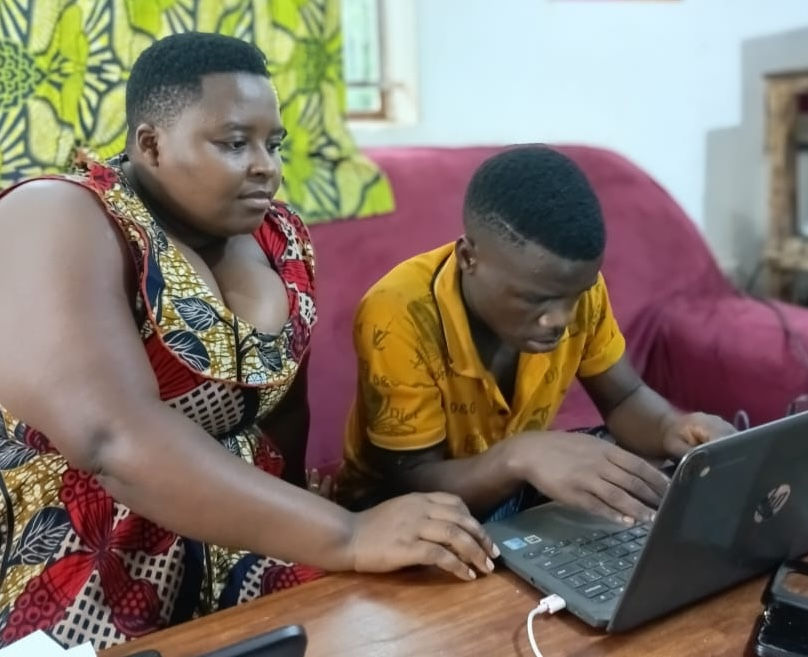More Good News Uganda Stories, Please!
- Lori Bonertz

- Jul 18, 2025
- 3 min read
Updated: Nov 16, 2025
Exploring the negativity bias in the news and how it affects lower-resourced countries.

In the first part of 2025, anyone following the news cycle probably feels more discouraged than ever, whether it's politics or the environment or rising inflation. Headlines on traditional and social media grab you with their dramatic scenes and urgent headlines. But what about Africa? What about Uganda, where you may sponsor a child in our program, or you may follow for other reasons of interest. Uganda needs more good news stories.
If you think negative stories seem to get more attention than positive stories—you're right. A study conducted by Harvard social and cognitive psychologists found negative words in a headline increased the chance that article got clicked. It's even got a name in psychology: the Negativity Bias.
So let's take some stories from the pearl of Africa, which, by the way, are rarely reported in the national media. But when you do see articles about Uganda, they're usually bad news. A quick search of the New York Times revealed just 10 articles on Uganda since September 2024, all of them negative-tinged:
‘The Impact of Shrinking Resources in Uganda, Seen Through a Reporter’s Eyes’;
‘Ugandan Opposition Leader Who Was ‘Kidnapped’ in Kenya Turns Up in Court’;
A 4-Year-Old Boy Dies of Ebola in Uganda as U.S. Pulls Back on Help’;
‘Rebecca Cheptegei, Olympic Runner From Uganda, Dies After Gasoline Attack’.
When it comes to sub-Saharan Africa and Uganda specifically, this negativity in the news perpetuates the Western world's muddled stereotypes we have towards lower-resourced countries (despite some politician's words, they are NOT "shithole countries"). Progress towards the United Nations Sustainable Development Goals is occurring worldwide, and we are helping one small corner of the world.
So—besides out incredible work with improving the lives and livelihoods of the Indigenous Batwa—we gathered up some good news from Uganda. Few of these stories get covered in the North American news!
According to World Health Organization (WHO) data, Uganda’s life expectancy is now 65 for men and 69 for women, as of 2022., up from 50 in 2002. That's huge! For the Batwa, Dr. Scott Kellerman, a medical missionary who founded Bwindi Community Hospital, did a smaller survey in 2000 and found Batwa life expectancy was 27. TWENTY SEVEN. That was skewered downward by the fact that 40% of children under five died. FORTY PERCENT. While I don't know the current Batwa life expectancy, I can promise it's higher than it was, though I'd suspect still substantially lower than the national average.
Did you know that Uganda accommodates more refugees than any other African country? In 2014, our director Wendee Nicole reported a story on refugee settlements in the north (Adjumani and Arua's Rhino Camp), for people fleeing South Sudan's civil war. She wrote about WASH (Water, Sanitation, and Hygiene) in refugee camps for the National Institute of Environmental Health Sciences' publication, Environmental Health Perspectives.
In October 2024, Uganda’s Ministry of Health and WHO released a strategy to improve healthcare support for refugee and migrant communities (caring about migrants and refugees is a great strategy for developing long-term relations with neighboring countries).
Uganda achieved 92% coverage in its yellow fever vaccination campaign this year.
Redemption Song Foundation wants to reverse the negative news trend and bring hopeful reportage. We have started a slow, but steady campaign to teach our students how to write their stories, and hope to apply for grants to formalize that into a program with sufficient funds to get laptops, cell phones, and journalists to teach our kids the trade of reporting. That can include essay writing, investigative reporting, or even just social media. We need more Indigenous people and more Africans showing up on our feeds, helping us understand a bigger picture of the world than we see on our nightly doomscrolling.

Note from the author: By donating to RSF, I feel I am helping create positive stories. I know the organization engages with the Batwa people to determine their needs and to empower them to be problem-solvers. Ensuring families are housed and children, particularly girls, receive an education, should help offset the challenges this marginalized population faces and give them agency to make their own ‘happier’ headlines.



Comments